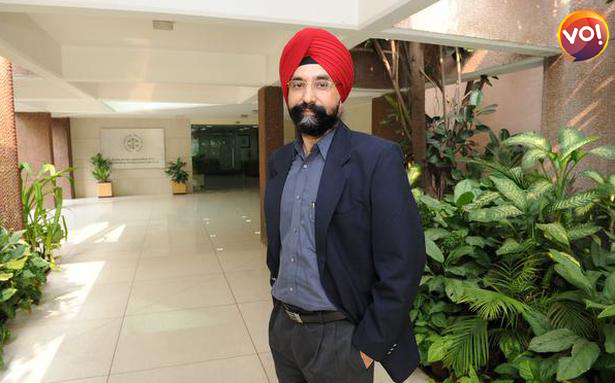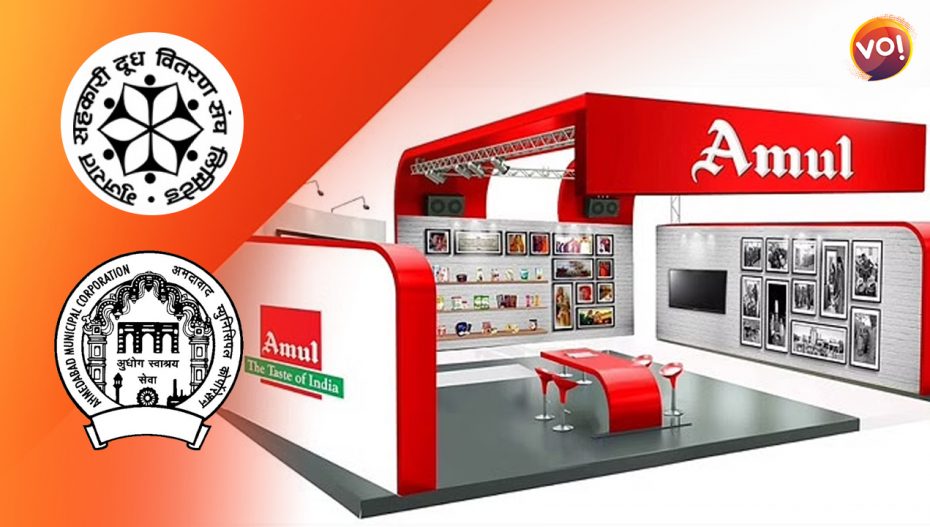One of the contentious issues Ahmedabad’s new Municipal Commissioner, M Thennarasan will need to resolve concerns the 200-odd Amul parlours attached to parks in the city. These parlours were set up by Gujarat Cooperative Milk Marketing Federation (GCMMF) under a barter agreement with the Ahmedabad Urban Development Authority (AUDA), whereby GCMMF committed to look after the maintenance of the parks in exchange for the lease.

Bhaskar Bhatt, leader of the BJP in Ahmedabad Municipal Corporation (AMC), has now demanded that GCMMF deposit Rs 5 crore as a guarantee against park maintenance. “This is a standard practice AMC follows with contractors. Amul cannot be an exception,” he says.
The money would not be income for the AMC but would be deposited in an escrow account (an arrangement in which a third party receives and disburses money) in case of any contractual default. But it would serve to shore up AMC’s balance sheet at GCMMF’s expense. GCMMF managing director RS Sodhi says he is not about to accede to such a demand. “Our money will be unnecessarily blocked. As it is, we spend Rs 20 crore on the upkeep of the AMC gardens, annually.”

The AMC-AUDA collaboration in the 1990s is actually an important part of Amul’s history. Ahmedabad was the first to introduce such outlets and is the only city to have them in such large numbers and in such prime locations. Today, they are a highly visible part of the cityscape, something visitors notice and remark upon.
The park parlours were Amul’s first exclusive stores and were basically milk booths in the beginning, stocking curd, butter, ghee, cheese and liquid milk. They were later redesigned by the National Institutional Design in a modular format that was easy to replicate on a large scale (NID was also the first institute to have an Amul parlour inside its campus). Today, Amul has over 8,000 parlours across the country and the brand’s product portfolio has vastly expanded to include everything from biscuits, bread and ice cream to juices, mithai and chocolates.

The first AMC park parlours were directly run by Amul and fell under the charge of GCMMF’s Ahmedabad Branch Manager. Later, they were franchised to GCMMF’s distributors. Former GCMMF managing director BM Vyas, who played a prime role in fashioning Amul’s retail strategy, says the parlours turned profitable very quickly and the profits have always been more than enough to meet the cost of park upkeep. How profitable are they today? “I estimate the average parlour in an A or B class city would make a net profit of at least Rs 2 lakh per month, after all expenses,” he says.
When Amul parlours were started, the dairy industry was restricted to co-operatives and ensuring adequate milk supply to citizens was still considered a part of a municipal corporation’s duties. But now that milk is available in abundance and the dairy industry has been opened up to private competition, attitudes have changed.
The new-gen views Amul’s parlours in purely commercial terms and they are obviously very profitable. The parlours occupy prime locations in the city and remain busy from 5 am in the morning (when the milk arrives) to late at night. In the present scenario, can the three decade long barter arrangement of Amul looking after park maintenance in exchange for lease rights on the parlour properties continue? Or will the AMC eventually go for an open tendering process, obliging Amul to bid against private players for the properties?
-With inputs by Ajeet Tiwari
Also Read: India Now A Defence Force To Reckon With: Dr Ajay Kumar













